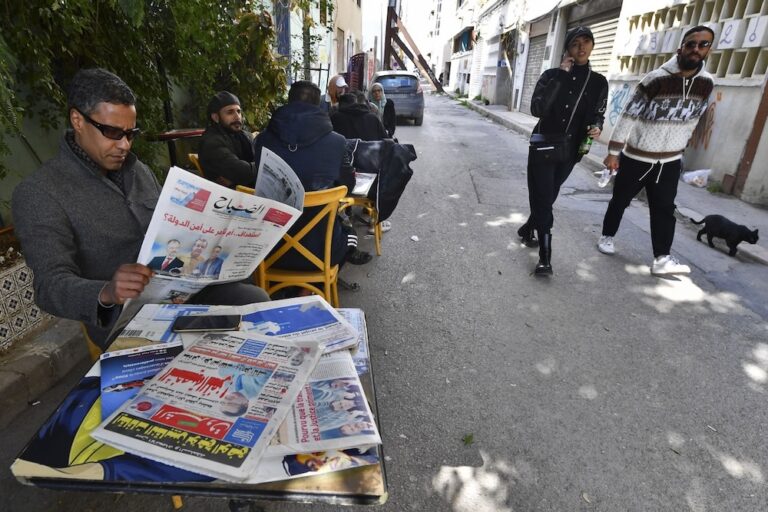An appeals court has refused to release Zuhair Makhlouf despite his completion of a three-month prison term.
(CPJ/IFEX) – New York, January 20, 2010 – An appeals court in the city of Nabeul refused today to release Tunisian journalist Zuhair Makhlouf despite his completion of a three-month prison term imposed in October. The Committee to Protect Journalists condemns the court’s decision and demands authorities release Makhlouf immediately.
Makhlouf, a contributor to news Web site Assabil Online and the opposition weekly Al-Mawkif, remains in prison following his lawyer’s motion for a provisional release, according to news reports. Makhlouf’s sentence ended on January 18 but Tunisian penal code provisions say a prisoner cannot be released before all appeals have been considered. Makhlouf lodged his appeal within days of being sentenced in October on the charge of “harming and disturbing others through the public communication network.” The court today designated February 3 as the date for Makhlouf’s initial appeals hearing, according to his lawyer, Mohamed Abbou.
“We are outraged that Zuhair Makhlouf remains in prison despite having served his sentence in its entirety,” said CPJ Middle East and North Africa Program Coordinator Mohamed Abdel Dayem. “We call on President Zine El Abidine Ben Ali to ensure his immediate release, and to end the assault on independent journalism.”
Abbou said authorities prevented Makhlouf’s colleagues from visiting him in prison and intercepted a letter from his wife informing him that his sister had died. “My client did not hear of his sister’s death until today’s court session,” Abbou told CPJ. “He was very pained not to attend her funeral. The authorities cannot justify withholding that correspondence nor can they use the law to seek revenge for my client’s articles. The court’s decision is clearly a vicious way to delay his release and punish him for his journalistic work.”
The court’s decision comes days before a scheduled January 23 appeal hearing for Taoufik Ben Brik, a journalist sentenced to six months in prison on a series of trumped-up charges, including harming public decency, and defamation. Many journalists said they believed the prosecution was prompted by interviews Ben Brik had conducted with critics of the president shortly before the October election.


